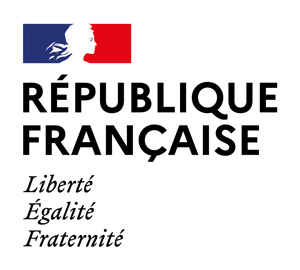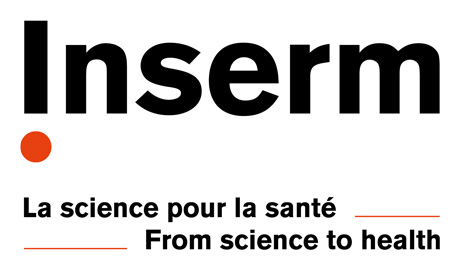





Credit Assignment - Problem in sensorimotor adaptation and learning: experimental analysis and computational modeling
We are looking for a PhD student to join our group to work on a collaborative multidisciplinary research on the Credit Assignment Problem in sensorimotor adaptation and learning. This project is part of a recently funded collaborative program (ANR grant ACES) between research teams in Lille and Marseille. Using computational modeling and behavioral measures (visual psychophysics, eye movements), the PhD student will study the dynamics of context-dependent sensorimotor adaptation.
Scientific project
Contextual motor adaptation is the ability to produce different motor responses depending on different contingencies signal led by specific sensory cues or contexts. This requires to learn the relation between cues, that signal the future state of the environment, motor responses, and outcomes. However, it has also been reported that some cues fail to control the adaptation of the oculomotor response, a fact which is described as a problem of “credit assignment”. A wealth of research, including ours, have demonstrated that voluntary eye movements constitute an ideal model system to study visuomotor adaptation(Madelain et al. 2011;Damasse et al. 2018). In addition, computational models based on the theoretical framework of active inference (Friston et al. 2016) have been developed to account for the dynamic evolution of visually-guided gaze orientation (Perrinet et al. 2014;Daucé et al. 2020) and its adaptation to contextual contingencies (Pasturel et al, 2020). Within the ACES collaborative research, we aim at investigating how the credit assignment problem can be modelled within the same general framework for sensorimotor adaptation and learning. In perspective this research will potentially shed new light on the optimal conditions to achieve efficient adaptive behaviour in ecological contexts.
Work environment
The selected candidate will be part of the Vision and theBrainetsgroupsof the Institut de Neurosciences de la Timone (INT, https://www.int.univ-amu.fr/), affiliated to the CNRS and Aix-Marseille Université, in Marseille. The research community at the INT is a vibrant international community in Neuroscience, spanning a broad range of topics, from the cellular to the cognitive and computational level, and many diverse experimental models and techniques. PhD students in neurosciencehave access to many training opportunities through the local Neuroschool PhD Program (https://neuro-marseille.org/en/training/phd-program/).The PhDstudent will work under the co-supervision of Dr Daucé and Dr. Montagnini and in close collaboration with Dr Perrinet. In addition, regular visits and common meetings with the ACES main partner, the Lille research team(lead by Prof. Laurent Madelain and including Prof. Jeremie Josefoviez as well as a PhD student and a Postdoc). Computing and experimental facilities (eye-trackers, high-quality calibrated screens) are available and functioning at the hosting lab.
PhD Candidate profile
We are looking for an enthusiastic, highly motivated, well-organized and modeling-oriented candidate with a degree in Master of Neuroscience, Cognitive Sciences, Psychology, Computer Science, Engineering, or related fields. Good skills in programming (preferentially Python) are required, as well as analytical skills, and a strong interest in human behavior and learning. Previous experience in computational neuroscience and/or inhuman experimentation including psychophysics and eye movements will be greatly appreciated.
Offer and application process
We offer a fulltime paid PhD position for 3 years (net salary ~1600 euros per month), starting between September and December 2022. Applications, including a CV, motivation statement and contact details for two referees, should be submitted by email to Anna Montagnini anna.montagnini@univ-amu.fr, Emmanuel Daucé edauce@gmail.com and Laurent Perrinet laurent.perrinet@univ-amu.fr. Shortlisted candidates will be invited for an interview. The final decision will be communicated upon finding the ideal candidate and at the latest in September 2022
References
Damasse, J.B., L.U. Perrinet, L. Madelain,andA. Montagnini(2018) Reinforcement effects in anticipatory smooth eye movements. Journal ofVision18(11): p. 14.Daucé, E., P. Albiges, and L.U. Perrinet, (2020)Adual foveal-peripheral visual processing model implements efficient saccade selection. Journal of Vision, 20(8).Friston, K., T. FitzGerald, F. Rigoli, P., Schwartenbeck, and G. Pezzulo (2016)Active inference and learning. Neuroscience & BiobehavioralReviews68: p. 862-879 Madelain, L., C. Paeye, and J.C. Darcheville (2011) Operant control of human eye movements. Behav Processes. 87(1): p. 142-8.Pasturel, C., A. Montagnini, and L.U. Perrinet, (2020) Humans adapt their anticipatory eye movements to the volatility of visual motion properties. PLoS computational biology 16(4): e1007438.Perrinet, L.U., R.A. Adams, and K.J. Friston (2014)Active inference, eye movements and oculomotor delays. Biol Cybern,108(6): p. 777-801.